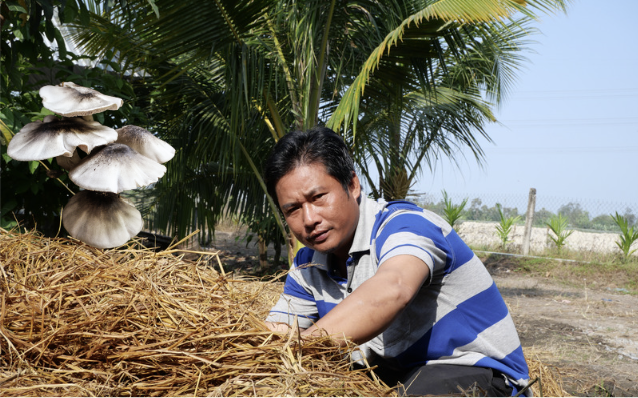Beneficiaries

Country
Projects
The Mekong-ROK Cooperation Fund aims to promote regional sustainability by addressing climate change and environmental concerns. It focuses on cross-sector cooperation to combat air, water, and land pollution, reduce the effects of floods, droughts, and saltwater intrusion, and promote environmentally friendly technologies.
The framework aims to strengthen the Mekong region's resilience by promoting low-GHG transportation and the development of e-mobility ecosystems. Furthermore, it promotes the use of electric vehicles (EVs) and develops low-carbon emission rules in the transportation sector. The plan of action strongly supports biodiversity protection, green industries, and green cities while encouraging collaboration in areas such as energy efficiency, circular economy, and sustainable consumption.

Cooperate in water resources management, ensuring a harmonious flow that sustains the region's communities and ecosystems.
Collaborate in disaster management, standing prepared to face natural hazards and protect our communities.
Cooperate in the sustainable management of natural resources, acting as guardians of the region's biodiversity.
Mitigate and adapt to climate change, fostering practices that allow the Mekong to thrive amidst environmental challenges.
Promote sustainable transport and logistics, moving towards a future where every journey contributes to environmental sustainability.
Promote Environmental, Social, and Governance (ESG) practices in production sectors, fostering ethical progress.
Develop green infrastructure to enhance climate resilience, building a foundation for resilient and sustainable futures.
Apply traditional knowledge in natural resources management, weaving the wisdom of the past into sustainable practices.

The construction sector plays significant role in satisfying the basic social and physical needs of people in terms of providing buildings for accommodation and business or services. With the growing population in cities of Cambodia, there is no doubt that the demand for housing is undeniably high. Cambodias largest energy consumption sector, accounting for 52% of the total consumption in 2017. In the same year, residential and commercial buildings consumed 77% of the final electricity.
Read More
The Livelihood Development for Sustainable Forest Governance in Laos is being implemented by the REDD+ Division, Department of Forestry, and Ministry of Agriculture.
Read More
Due to the rapid growth of population, climate change and environmental pollution, clean water
Read More
The X-Water Project of Lao PDR selected two research areas, namely Nathong village, Phatang village, and Phahom village in Vangvieng District, Vientiane province.
Read More
ASEAN has strengthened efforts to resolve the development gap through the & #39;Master Plan on ASEAN Connectivity (MPAC) 2025 and the Initiative for ASEAN Integration (IAI) work plan. In addition, a new direction of international cooperation has been proposed with the adoption of the United Nations & #39; Sustainable Development Goals (SDGs) in 2015 and the signing of the Paris Agreement to combat climate change and adapt to its effects.
Read More
Cassava is an economically important crop for the countries in the Mekong region. Considerable trade in cassava and cassava products occurs between these countries. As it is usually grown on a small scale, many farming family’s livelihood depending upon this crop. The value of cassava exports for both Vietnam and Thailand in 2017 were roughly US$1 billion each.
Read More
Saline intrusion and climate change-related natural risks have been being occurred increasingly serious in many countries of Mekong region, especially countries in the lower Mekong River.
Read More
10-May-2024
Due to the rapid growth of population, climate change and environmental pollution, clean water resources have become limited, seriously affecting people’s wellbeing, especially in the rural areas. As water, inequalitie...
View More
26-Apr-2024
Discover how Vietnam and Cambodia are tackling rice farming challenges. Climate change, labor shortages, and burning rice straw pose serious threats. But with the Rice Straw-Based Circular Economy for Improved Biodiversi...
View More